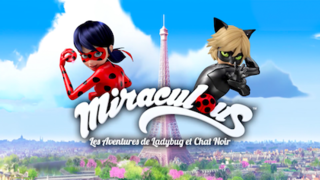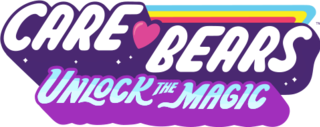Related Research Articles

Bagpuss is a British animated children's television series which was made by Peter Firmin and Oliver Postgate through their company Smallfilms. The series of thirteen episodes was first broadcast from 12 February to 7 May 1974. The title character was "a saggy, old cloth cat, baggy, and a bit loose at the seams". Although only thirteen episodes were produced and broadcast, the programme remains fondly remembered, and was frequently repeated in the UK until 1986. In early 1999, Bagpuss topped a BBC poll for the UK's favourite children's television programme.

Nelvana Limited is a Canadian animation studio and entertainment company owned by Corus Entertainment. Founded in July 1971 by Michael Hirsh, Patrick Loubert, and Clive A. Smith, it was named after Nelvana of the Northern Lights, the first Canadian national superhero, who was created by Adrian Dingle. The company's production logo is a polar bear looking at Polaris, the North Star.

Maple Town, also known as Maple Town Stories, is a 1986 Japanese anime series created by Chifude Asakura and directed by Junichi Sato. The series, animated by Toei Animation, consists of 52 half-hour episodes, which aired on TV Asahi in Japan from January 19, 1986, to January 11, 1987.

The Little Mermaid is an American animated musical television series produced by Walt Disney Television Animation based on the 1989 animated feature film of the same name. It features the adventures of Ariel as a mermaid prior to the events of the film. This series is the third Disney television series to be spun off from a major animated film. Some of the voice actors of the film reprise their roles in the series, among them Jodi Benson as Ariel, Samuel E. Wright as Sebastian, Kenneth Mars as King Triton, and Pat Carroll as Ursula. Other voice actors include Edan Gross as Flounder, and Jeff Bennett as Prince Eric.

The Bugs Bunny Show is a long-running American animated anthology television series hosted by Bugs Bunny that was mainly composed of theatrical Looney Tunes and Merrie Melodies cartoons released by Warner Bros. between 1948 and 1969. The show originally debuted as a primetime half-hour program on ABC in 1960, featuring three theatrical Looney Tunes cartoons with new linking sequences produced by the Warner Bros. Cartoons staff.

Rasmus Klump is a Danish comic strip series for children created in 1951 by the Danish wife-and-husband team Carla and Vilhelm Hansen. The series was translated into a number of foreign languages, in some of which the title character Rasmus was renamed Petzi, Pol, Rasmus Nalle or other variations.
Il était une fois... La vie is an animated series created by Albert Barillé from Procidis studios (France) in 1987 for Canal+ France talking about the human body and its functions in a simplified and educational way. The series consists of 26 episodes originally aired on the French channel Canal+, and then on the state-owned channel FR3. It is the third part of the Once Upon a Time... series. Just like the previous series,Once Upon a Time... Space, the series was animated in Japan by the same studio, Eiken. However, unlike the previous series, it was only released on a VHS in Japan.

Albert Barillé was a French television producer, creator, screenwriter, cartoonist, and founder of Procidis. He is the creator of the puppet animated series Les Aventures de Colargol, and the series Once Upon a Time.... He was also an author of medical documentaries, theater pieces, and popularized philosophy.

Télétoon is a Canadian French language specialty channel owned by Teletoon Canada, Inc., a subsidiary of Corus Entertainment. Launched on September 8, 1997, the channel broadcasts animated series aimed at kids, teens, and adults. Its name is a portmanteau of "télévision" and "cartoon".
Once Upon a Time… is a French educational animation franchise, created by Albert Barillé for his animation studio Procidis. There are seven distinct series, each focusing on different aspects of knowledge. Once Upon a Time… has been shown in a hundred different countries, and 150 million video cassettes and DVDs have been sold around the world, as well as 250 million tie-in books.
Once Upon a Time... Planet Earth is a French children's television educational animated series directed by Albert Barillé. It was produced by Procidis and France 3 with the support of the Centre National de la Cinematographie, the Directorate-General for Research of the European Commission and the European Broadcasting Union (EBU). The series was initially broadcast since 22 December 2008 on France 3. This series was the belated finale of the Once Upon a Time... educational television franchise, and its original premise was set up from "Once Upon a Time... the Earth ", the final episode of the first series Once Upon a Time... Man, thus finally going back to the beginning where it all started and ended. The series' premiere also coincided with the 30th anniversary milestone of said educational animation franchise.

Once Upon a Time... Man is a French animated TV series from 1978 directed by Albert Barillé. It is the first in the Once Upon a Time... franchise. The series explains world history in a format designed for children. The action focuses around one group. The same familiar characters appear in all episodes as they deal with the problems of their time.

Miraculous: Tales of Ladybug & Cat Noir is a 2015 French animated magical girl superhero television series created by Thomas Astruc and developed by Jeremy Zag. The series is produced by French companies Zagtoon and Method Animation and co-produced with Japanese studio Toei Animation's European division, and several international companies.
Events in 1965 in animation.
Events in 1970 in animation.
"Wizard of Odd" is the 56th broadcast episode of the second season of the animated television series Phineas and Ferb and the 103rd broadcast episode overall. It was originally broadcast on Disney Channel on September 24, 2010. In this episode, Mom says that Phineas and Ferb have to clean the house and she asks Candace to help, but she refuses and instead reads the book Mom gives her, The Wizard of Oz. Phineas and Ferb spin the house and spray it with a hose, but they spin the house too fast and accidentally knock Candace out, sending her into a Wizard of Oz-esque dream world. She journeys to "Bustopolis" under the impression the world is a simulation created by her brothers, but soon discovers that evil forces are attempting to get the boots that have grown on her feet.

Care Bears: Unlock the Magic is an animated children's television series and the sixth television series based on the Care Bears franchise, following Care Bears and Cousins.

The Adventures of Paddington is an animated television series developed for television by Jon Foster and James Lamont. The series is co-produced by Heyday Films and StudioCanal, with the participation of Nickelodeon, M6 and Piwi+. The animation for the series is produced by Blue-Zoo Animation Studio and Superprod Studio. The series is based on the Paddington Bear franchise. The series airs on Nickelodeon internationally, except in France where the series airs on Gulli and later on M6 and Piwi+.

Les Aventures de Colargol is an animated television series which ran for 53 episodes of 13 minutes each, created by Albert Barillé after the Colargol created by Olga Pouchine and broadcast from November 9, to 1974 on the Deuxième chaîne de l’ORTF. The series has been successfully exported to many countries.
Events in 1920 in animation.
References
- ↑ Crump, William D. (2019). Happy Holidays—Animated! A Worldwide Encyclopedia of Christmas, Hanukkah, Kwanzaa and New Year's Cartoons on Television and Film. McFarland & Co. p. 75. ISBN 9781476672939.
- ↑ Zipes, Jack; Greenhill, Pauline; Magnus-Johnston, Kendra (16 September 2015). Fairy-Tale Films Beyond Disney: International Perspectives. Routledge. ISBN 9781134628131 . Retrieved 10 November 2016– via Google Books.
- ↑ Priebe, Kenneth A. (1 January 2011). The Advanced Art of Stop-Motion Animation. Cengage Learning. ISBN 978-1435457041 . Retrieved 10 November 2016– via Google Books.
- ↑ Lesnik-Oberstein, K. (13 June 2011). Children in Culture, Revisited: Further Approaches to Childhood. Springer. ISBN 9780230307094 . Retrieved 10 November 2016– via Google Books.
- ↑ Sheridan, Simon (2004). The A-Z of Classic Children's Television: From Alberto Frog to Zebedee. Reynolds & Hearn Ltd. pp. 52–53. ISBN 1903111277.
- ↑ "Television for children: problems of national specificity and globalisation" (PDF). reading.ac.uk.